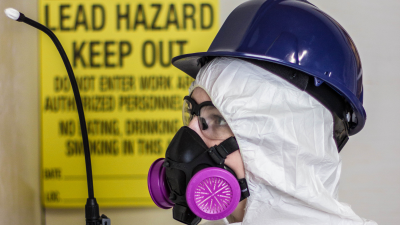Around 1.5 million workers will benefit from new protections from exposure to cancer-causing lead.
Safer exposure limits for lead have been agreed today as part an inter-institutional agreement on the fifth revision of the Carcinogens, Mutagens, and Reprotoxic Directive.
When implemented, the new limits will mean that:
- The occupational exposure limit will be lowered from 0.15 milligrams per cubic meter (0.15mg/m3) to 0.03mg/m3
- The biological exposure limit will be lowered from 70 microgram per 100 millilitre of blood (70µg/100ml) to 15µg/100ml.
Cancer risk
The new limits will better protect workers at risk of reproductive problems as well as stomach, lung and bladder cancer as a result of inhaling lead dust or fumes. Currently 11 EU countries have exposure limits higher than those agreed.
Today’s deal also includes an agreement to further lower the biological exposure limit based as new scientific evidence becomes available. This is important in order to protect women already working in the industry and to support a more gender balanced workforce in these sectors.
However, the Council insisted that the usual two year transposition period be extended to five years.
The ETUC urges member states to show greater ambition in implementing the directive, starting without delay rather than waiting for the 3-year period proposed by the Council.
ETUC Deputy General Claes-Mikael Ståhl said:
“More than a million people are exposed to lead dust and fumes at work, which can have serious consequences for reproductive health and can also increase the risk of cancer.
“The current exposure limits in a dozen member states are far too high to keep people safe.
“The new limits will not only give much better protection to workers, but also help achieve a more gender balanced workforce in many industries.
“The Council’s insistence that the implementation of the safer new limits is therefor dangerous and counterproductive. Member states should not wait to put these new protections into action.”

